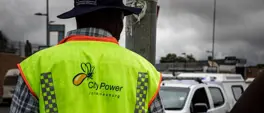'Costly and time-consuming Fica experiment a dismal failure' says risk management specialist
Paula Luckhoff
15 October 2025 | 18:21First introduced by the FATF to combat money laundering, the know your customer (KYC) system does not work at all, anywhere, says the Free Market Foundation's Brian Benfield.

Money laundering, Image from Pixabay
South Africa’s costly KYC and FICA regime has failed, as it has in the rest of the world, says risk management specialist Brian Benfield.
After 35 years, the verdict on 'know your customer' (KYC) and the Financial Intelligence Centre Act (FICA) is unmistakable, declares the retired Wits economics professor and board member of the Free Market Foundation in an opinion piece for news site BusinessLIVE.
RELATED:
Since 1989, when the Group of Seven established the Financial Action Task Force (FATF) to combat money-laundering, KYC protocols - subsequently known in SA as FICA, have metastasized across the globe, he writes.
"Today virtually every bank, insurer, broker, asset manager, legal practice, estate agent, casino and, lately, even businesses selling items of R100,000 or more are compelled to collect, verify and retain exhaustive personal data about their clients before undertaking the most ordinary of transactions."
In conversation with Stephen Grootes, Benfield reiterates that the original purpose for these controls provided by the FATF was in fact to prevent money laundering, and fundamentally to stop drug traffickers.
Subsequently there has been extensive mission creep, as he explains:
"After the Twin Towers (September 11 attacks of 2001) they added the financing of terrorism; and subsequent to the international financial crisis it was to maintain the integrity of the global financial system. when we really know that initially it was introduced to catch wealthy Americans and find out how they were getting their money into favourable tax jurisdictions."
In line with this mission creep, he refers to how just about anybody with a bank account in South Africa is required on a regular basis to produce documents they've produced before like IDs, proof of residence, and more latterly proof or source of income.
This has become just a tick box exercise for banks and other financial institutions, he maintains, particularly in the face of the hefty fines levied if they do not comply.
"To avoid the fines they spent millions, or billions in fact, so the costs have been enormous just on the companies themselves."
And as to the cost for individuals - just think of the time and effort it takes running around to get hold of the documents required.
Even the United Nations has conceded that the system does not work at all, Benfield says.
"The level of money laundering that's going on across the world today is the same as it was when FICA was introduced here in 2001."
To listen to Brian Benfield in conversation with Stephen Grootes on 702's The Money Show, click on the audio link below:
Get the whole picture 💡
Take a look at the topic timeline for all related articles.














